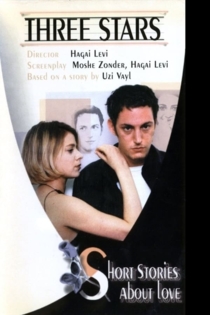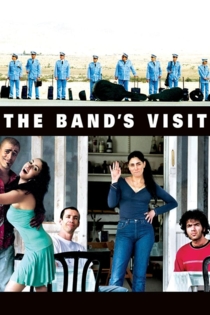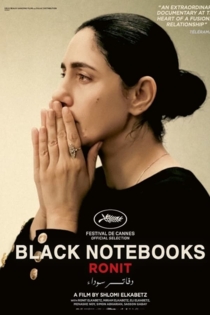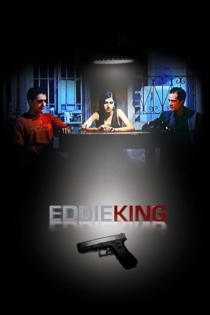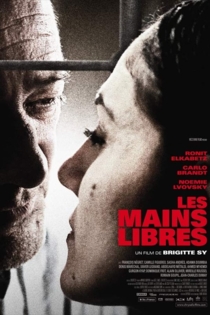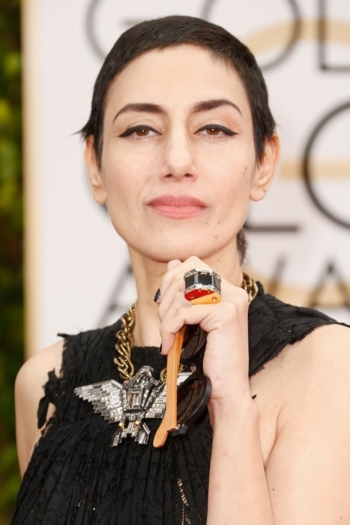
Ronit Elkabetz
1964 - 2016Description above from the Wikipedia article Ronit Elkabetz, licensed under CC-BY-SA, full list of contributors on Wikipedia.
גט - המשפט של ויויאן אמסלם
Shlomi Elkabetz, Ronit Elkabetz
Ronit Elkabetz, Simon Abkarian
The trial story of Viviane Amsalem's five year fight to obtain her divorce in front of the only legal authority competent for divorce cases in Israel, the Rabbinical Court.
Gett: The Trial of Viviane Amsalem
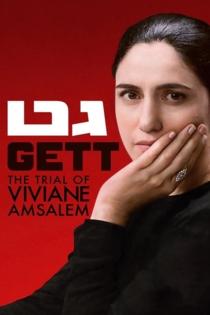
חתונה מאוחרת
Dover Koshashvili
Lior Ashkenazi, Ronit Elkabetz
Zaza is a 31-year old Israeli bachelor, handsome and intelligent, and his family wants to see him married. But tradition dictates that Zaza has to choose a young virgin. She must be beautiful and from a good family, preferably rich. Zaza's parents, Yasha and Lily drag Zaza to meet potential brides and their families. Zaza has no choice. He plays along with his family, advocates of the suffocating traditions of their Georgian Jewish heritage. But Zaza always manages to somehow get out of being engaged. What his parents don't know is that Zaza is already in love. Judith is sensuous, strong and intriguing. She's also a divorcée with a 6-year-old daughter. So Zaza has kept Judith a secret from his family. He will have to choose between respect of the strict confines of family and tradition, or the love of his life.
Late Marriage
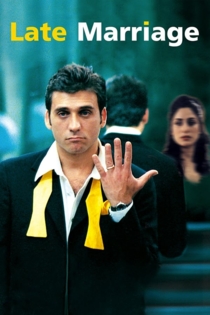
ולקחת לך אישה
Shlomi Elkabetz, Ronit Elkabetz
Ronit Elkabetz, Simon Abkarian
The story takes place in Haifa, Israel, in 1979, during three days before the Shabbat. A young woman trying to raise three children, work from home, and observe the strict Moroccan traditions of her family finds herself at constant odds with her husband and her brothers, who want her to stay married and leave behind the notions of being loved and free.
To Take A Wife
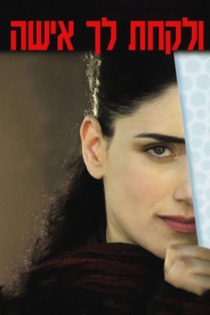
Or (My Treasure)
Keren Yedaya
Ronit Elkabetz, Dana Ivgy
Or shoulders a lot: she's 17 or 18, a student, works evenings at a restaurant, recycles cans and bottles for cash, and tries to keep her mother Ruthie from returning to streetwalking in Tel Aviv. Ruthie calls Or "my treasure," but Ruthie is a burden. She's just out of hospital, weak, and Or has found her a job as a house cleaner. The call of the quick money on the street is tough for Ruthie to ignore. Or's emotions roil further when the mother of the youth she's in love with comes to the flat to warn her off. With love fading and Ruthie perhaps beyond help, Or's choices narrow.
Or (My Treasure)
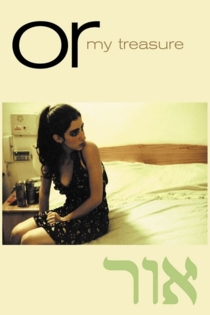
Zarafa
Jean-Christophe Lie, Rémi Bezançon
Max Renaudin, Simon Abkarian
Inspired by the true story of the first giraffe to visit France, Zarafa is a sumptuously animated and stirring adventure, and a throwback to a bygone era of hand-drawn animation and epic storytelling set among sweeping CinemaScope vistas of parched desert, wind-swept mountains and open skies. Under the cover of darkness a small boy, Maki, loosens the shackles that bind him and escapes into the desert night. Pursued by slavers across the moon-lit savannah, Maki meets Zarafa, a baby giraffe – and an orphan, just like him – as well as the nomad Hassan, Prince of the Desert. Hassan takes them to Alexandria for an audience with the Pasha of Egypt, who orders him to deliver the exotic animal as a gift to King Charles of France.
Zarafa
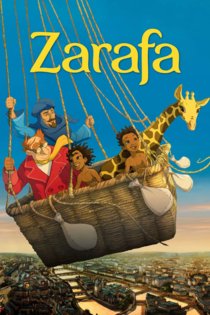
Kalat Hayam
Keren Yedaya
Dana Ivgy, Moni Moshonov
In the city of Jaffa; a young girl plans to run away with her secret lover, when a tragedy forever changes the course of their lives. Jaffa is a mixed Arabic - Jewish seaside city near Tel Aviv, where Reuven Wolf (Moni Moshonov) has a garage for repairing cars. His wife Ossi (Ronit Elkabetz), a vain, self-centered woman, just makes everybody's life difficult. The couple's daughter, Mali Wolf (Dana Ivgy), has secretly fallen in love with her childhood friend, the young Toufik (newcomer Mahmud Shalaby), a hard-working youth who has come as a helping hand to his Israeli-Arab father Hassan, a long-time mechanic working for Reuven.
Jaffa

Sh'Chur
Shmuel Hasfari
Gila Almagor, Ronit Elkabetz
A Jewish Moroccan immigrant family living in Israel is nearly destroyed by conflicts resulting from generational differences in this arresting Israeli drama. It begins as Cheli, a successful but emotionally troubled talk show host who has been unable to deal with her traumatic childhood is traveling to attend her father's funeral. She is accompanied by her mentally ill sister Pnina and her adopted estranged daughter. It is a hellish trip and as they travel, flashbacks chronicle their painful youth. Rachel had always wanted to break away from her family's Moroccan heritage and so spent much time trying make herself fit in with her Israeli peers. She was humiliated by her poor, ignorant family. Her father was an overbearing, blindly religious fanatic and their mother was a witch who manipulated the family by casting spells. She feared her mother, and despised her insane sister, to whom she was very cruel.
Sh'Chur
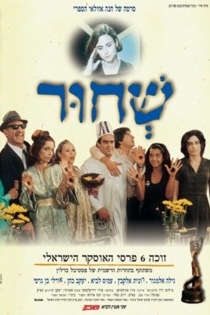
Shiva
Shlomi Elkabetz, Ronit Elkabetz
Ronit Elkabetz, Albert Iluz
When one of the brothers (Ohayn) dies, all the whole family comes for Shiva (Jewish tradition,when the family sits seven days at the home after the death one of their family). A large family with a lot of problems and conflicts between them.
The Seven Days
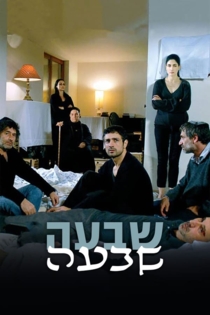
Mabul
Guy Nattiv
Yoav Rotman, Ronit Elkabetz
At the age of 13, Yoni is growing up. Fast. But not fast enough for this diminutive young man who is obsessed with getting bigger, taller and stronger. On the eve of his Bar Mitzvah, Yoni has no choice but to “become a man” when he’s faced with the unexpected return of his autistic brother who he has not seen for almost ten years.
The Flood
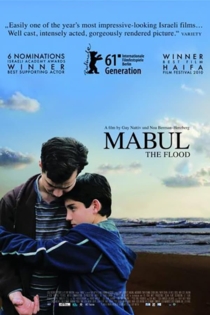
French Cinema Mon Amour
Damien Cabrespines, Ann-Solen Douguet
Jean-Pierre Dardenne, Luc Dardenne
French Cinema Mon Amour is an ensemble film in which each contributor brings their own voice, their own particular approach, their culture, and their language to produce a portrait of French cinema.
French Cinema Mon Amour
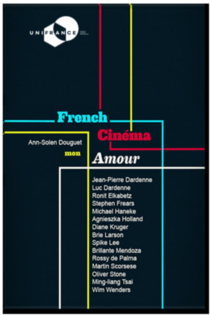
Trepalium
Vincent Lannoo
Léonie Simaga, Pierre Deladonchamps
It’s the end of the 21st century and society is in decline. The economic situation is a nightmare: only 20% of the population is actively employed while everybody else is jobless. On one side, the Jobless—hungry, thirsty, in a state of total abandon. On the other, the Actives—forever terrorized by the idea of losing their jobs. Separating them is a wall. Each camp expresses one facet of the same suffering; work, or the absence of it.
Trepalium

